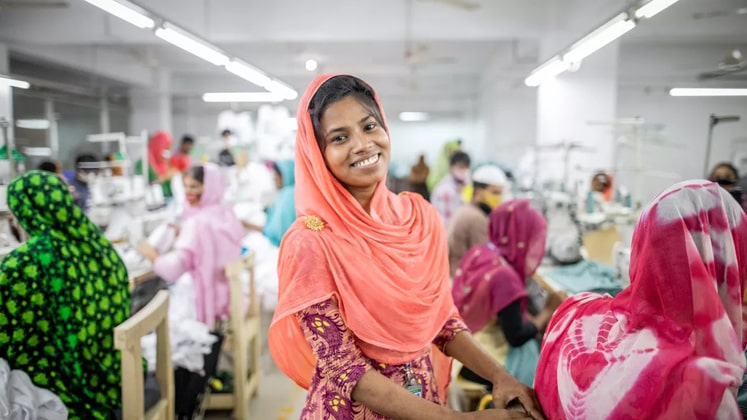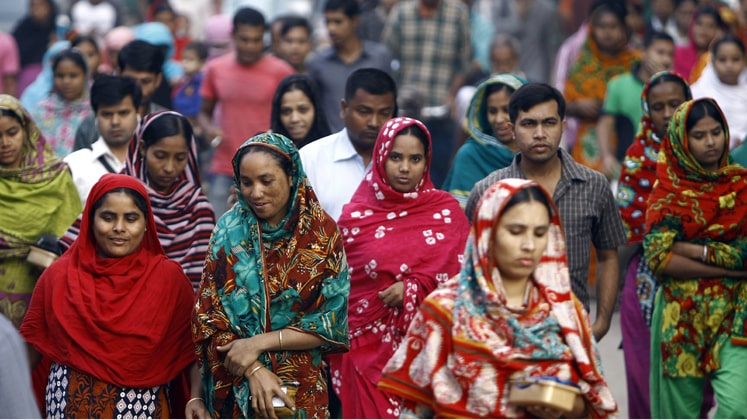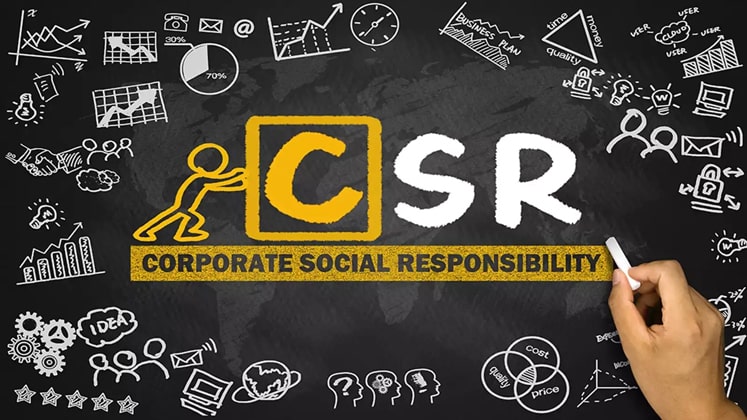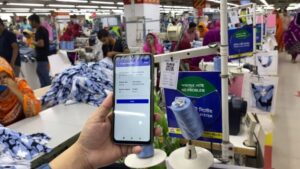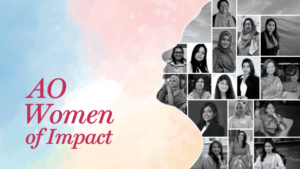Corporate Social Responsibility (CSR) and environmental, social and governance (ESG) criteria are today the guiding forces for business growth as they continue to evolve in essence and spirit. And Bangladesh, the second biggest apparel exporter globally, employing more than four million workers in its around 5000 garment manufacturing units and contributing more than 80 per cent to the gross domestic product (GDP) and export earnings, has recognised this significance rightly.
“Though many claim to do philanthropic activities, but those cannot be considered as actual CSR,”claims AKM Ahsanul Hoque, Director of Research and Training at CSR Bangladesh, speaking to Team Apparel Resources.
CSR is a management concept whereby companies integrate social and environmental concerns in their business operations and interactions with their stakeholders and is generally understood as being the way through which a company achieves balance of economic, environmental and social imperatives (‘Triple-Bottom-Line-Approach’), while at the same time addressing the expectations of shareholders and stakeholders.
In this sense, it is important to draw a distinction regarding CSR which can be a strategic business management concept or charity, sponsorship or philanthropy. Even though it can make a valuable contribution to poverty reduction and directly enhance the reputation of a company and strengthen its brand, the concept of CSR clearly goes beyond that.
Crucial as it is to business, CSR unfortunately has not been a focus area for many until recently, rues Ahsanul.
However, changing times have brought CSR back in focus and Bangladesh, which has already etched its name in the realm of green manufacturing, is now all set to take significant steps in terms of social compliance and workers’ welfare, considered the key pillars of CSR.
Reports validate Bangladesh’s progress!
As per the 2022 Fashion Industry Benchmarking Study conducted by the United States Fashion Industry Association, US fashion brands and buyers perceive lower social and labour compliance risks in sourcing apparel from Bangladesh as the rating of the country has registered an improvement.
It moved from 2.0 in the past few years to 2.5 in 2022 thereby reflecting the fashion companies’ acknowledgment of the continued efforts to improve social responsibility in the Bangladesh apparel sector.
“In comparison, more than 70 per cent of respondents say sourcing from China now involves ‘high’ or ‘very high’ labour and social compliance risks,” underlined the report while adding the US-based fashion brands and buyers will increase their sourcing from Bangladesh over the next two years along with India, Indonesia and Vietnam.
Industry insiders credited this upward movement of Bangladesh apparel industry in terms of social and labour compliance largely to the endeavours undertaken by large number of individual entities towards ensuring their workers’ well-being even if CSR initiatives not only promote the welfare and well-being of garment workers but also focus on ensuring fair wages, safe working conditions and access to healthcare and education.
What’s more, CSR programmes also reduce accidents and provide social support to workers and their families.
| “Employee experience is a top priority for us. Becoming LEED certified not only improves energy efficiency and lowers our carbon footprint, but also creates a better environment for the Crony Family” – Neela Hosna Ara |
CSR and its diverse benefits
Shin Shin Group is one amongst the early ones to strategise its business practices keeping with the principles of CSR.
“Our slogan is ‘Together We Grow’, and keeping up with the same, we want to take along everyone with us to not only ensure business prosperity but also growth and development of the society at large,” opined Mohammad Sohel Sadat, Chairman of Shin Shin Group speaking to ARin an earlier interaction.
Sohel’s principal aim is to leverage the diverse facets of CSR and business’ best practices to help Shin Shin evolve into a self-sustaining and self-dependent entity, following the path of successful business conglomerates like that of TATA in India.
As per the company’s CSR policy, its social sustainability philosophy is based more on social intent rather than economic focus, considering the fact that its core operations do not market products or services in Bangladesh. There is a decentralised framework, where control of CSR activities is given to the Divisions/Strategic Business Units, under an overarching focus on education, health, sports and environment to uplift living standards and create positive changes.
“CSR that leads to workers’ welfare and a happy community is definitely a big plus for any business. With a happy workforce, attrition level goes down while productivity increases. Happy workforce and happy community is a profitable business case for any organisation,” explains Ahsanul.
Starting garment manufacturing in 2008 followed by textile production in 2009, Echotex Limited (a vertical set-up with knitting, dyeing, digital and screen printing, laundry and garmenting facilities) is perhaps the perfect example of the same.
“Our attrition rate is around 2-3 per cent,” claims a proud Zahed M bin Quasem, Executive Director of Echotex speaking to AR.
Around 5 per cent attrition being the norm (more or less) in the industry, which at times can go up much higher, Echotex definitely has a reason to be proud of, thanks to its workers’welfare and employee engagement endeavours, which are being taken care of by the HR department of the company and overseen by the Director of HR and Ethical Trade.
| “Our very strong value system and ethics, led us to partner with like-minded customers. From the very onset, we focused on clients that have high ethical values and who share similar vision like us and are committed towards the social (CSR) causes”– Mohammad Mehroz Jalil |
The finest services from employees can be received if they feel comfortable in their jobs and have their rights and entitlements met, feels Quasem, adding Echotex invests in a variety of social programmes for its workers and employees.
| CSR is a management concept whereby companies integrate social and environmental concerns in their business operations and interactions with their stakeholders and is generally understood as being the way through which a company achieves a balance of economic, environmental and social imperatives (‘Triple-Bottom-Line-Approach’), while at the same time addressing the expectations of shareholders and stakeholders. |
There is a daycare centre, workers’ grocery facility sold at cost price, saving them at least 15 per cent, along with free breakfast, lunch and dinner, depending on the shift one is working.
Echotex’s ultimate aim is to provide a proper balanced diet for all employees even if each day it prepares hot lunch onsite for all 16,000 employees, free of cost, which the management feels not only improves employee health, but also ensures high productivity in return.
The company has now extended the health benefits to employees’ parents as well while also starting banking service within its factory premises for the convenience of the workers.
Giving it back to the people and the society!
Gabriel Adhikary’s take on CSR is steeped on the moral grounds. For the Managing Director of Grasp (a garment manufacturer specialising in woven bottoms apart from other products such as denim jeans, chinos, cargos, shorts, joggers, workwear, etc.), CSR is dispensing one’s moral responsibility towards the society rather than just looking at business profitability. He attributes his ethos of CSR to the perspective of his responsibilities towards the immediate society that Grasp operates in.
“Employee experience is the top priority for us. Becoming LEED certified not only improves energy efficiency and lowers our carbon footprint, but also creates a better environment for the Crony Family,” maintains Neela Hosna Ara, the Chairperson of Crony Group, who along with her husband A.H. Aslam Sunny (Managing Director), was graceful enough to spare a significant portion of their residence at Narayanganj so that BGMEA could set up a healthcare facility for the workers of the industry.
The husband-wife duo has also set up various educational institutes and healthcare facilities in their respective hometowns where the economically weaker sections can take advantage of the facilities concerned even if in their individual capacities, both keep contributing to various social causes from time to time.
Having shouldered the responsibilities of CSR, gender equality and women’s health and hygiene issues on behalf of the Crony Group for long and to great success, Neela is now on a mission to replicate the same for the industry in general while also focusing on the vital aspects of training and engagement to ensure all-round development of the industry and its workers, dominated principally by women.
“Our very strong value system and ethics led us to partner with like-minded customers. From the very onset, we focused on clients that have high ethical values and who share similar vision like us and are committed towards the social (CSR) causes,” underlines Mohammad Mehroz Jalil, the Deputy Managing Director of MBM Group, the HR-driven organisation steeped in its core values of CSR.
Since the inception of MBM, the tenets of CSR and philanthropy are firmly rooted in the company’s corporate DNA and it believes that a responsible corporate should not just focus on commerce but on creating values through responsible actions.
Free lunch (since 1988), scholarship programmes, Hajj pilgrimage programme, eye camps and various financial assistance for education, medical and family emergencies are some of the steps that MBM has undertaken for workers’ well-being and community wherein the company has partnered with various non-government bodies including names like Jaago Foundation while also partnering with National Youth Assembly and other community-based programmes to give shape to its various CSR endeavours.
| As per the 2022 Fashion Industry Benchmarking Study conducted by the United States Fashion Industry Association, US fashion brands and buyers perceive lower social and labour compliance risks in sourcing apparel from Bangladesh as the rating of the country has registered an improvement. |
Measuring, the key to success of CSR!
“There are some reporting mechanisms which help organisations to identify the CSR impact on their business. Organisations which spend on CSR need to involve entities like us in the whole process to ensure an independent third-party evaluation of CSR impact. This will not only bring about transparency in the whole process but also help the entrepreneurs to understand where and how to invest for maximum benefit,” explains Ahsanul, who believes returns from CSR are not always very tangible, which necessitates third-party interventions.
Strong monitoring and regular audits along with measuring outputs, reports, case studies and research can go a long way towards showcasing the progress made in the realm of CSR and this is where organisations like CSR Bangladesh play a pivotal role.
Corporate Social Responsibility is an indispensable component of responsible business practices and by prioritising CSR, companies can foster positive change where business success can go hand-in-hand with social and environment responsibility towards ensuring a sustainable future while also leaving behind a lasting legacy for others to emulate, underlined an apparel maker to wind up on a positive note.

